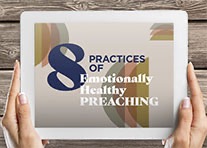Why Great Leaders are Great Grievers: Part 2 – EH Leader Podcast
The world may minimize, rationalize, deny, or medicate their losses, but God calls us to a different path in the new family of Jesus. Simply put, grieving well is a core discipleship issue – especially for those of us who lead. Consider a few of the great men and women in Scripture who were great grievers and great leaders: Isaiah, Hannah, Jeremiah, Moses, Mary, Paul, Peter, and most importantly, Jesus. Unless we courageously allow our losses to break open our hard hearts, we will project or inflict our unprocessed pain on others. But if we follow God’s pathway for us – paying careful attention to our pain, waiting with him in the confusing-in-between, and letting the old birth the new – we experience a stripping away of our false selves in order to become the new men and women we were truly meant to be. We move from spiritual babies with an incessant need. Read more.





